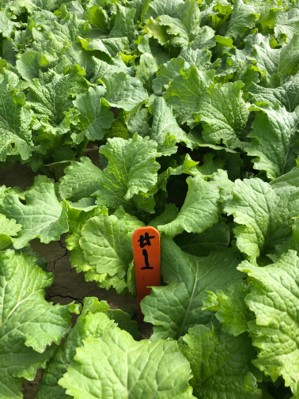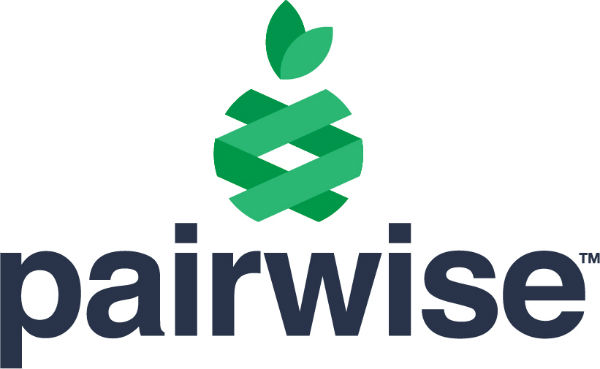Aug 25, 2020Pairwise’s leafy greens move closer to market
Bitter,” “peppery,” perhaps even “fiery.”
Take a bite of mustard greens that are available at your grocery store today and these might be the adjectives that come to mind.
Scientists at Pairwise, a food tech company in Durham that uses gene-editing tools to accelerate innovation in fruits and vegetables, would agree with your assessment, but they have something in the works that they hope will inspire you to see (and taste) the leafy greens differently in the near future.


Pairwise has developed new varieties of Brassica juncea, a leafy green that is part of the same family of vegetables as Brussels sprouts, cauliflower and kale. With the genome-editing technology known as CRISPR (Clustered, Regularly Interspaced Short Palindromic Repeats), Pairwise has leveraged good traits of Brassica juncea such as its high nutrient density and natural resistance to pests and diminished its less-favorable traits such as its pungent flavor.
“We have taken the heat of Brassica juncea down a notch with our new varieties,” said Heather Hudson, Ph.D., head of commercial at Pairwise. “And instead, we’ve created new leafy greens that have mild, crunchy, fresh flavors.” Hudson points out that the nutrition profiles of the new greens are superior to those they could substitute for in a salad such as spinach or romaine.
The U.S. Department of Agriculture recently confirmed Pairwise can proceed to commercialization of its new leafy greens in the same manner as the traditionally bred varieties we have enjoyed for years. Thus, the newly created vegetables will move into field trials and ultimately be planted by growers.
“Through the field trials, we’ll work to ensure our new products yield the desired flavors and have the overall quality that we intend,” said Ryan Rapp, Ph.D., head of product discovery at Pairwise.
At the conclusion of the field trials, Pairwise will work with partners to sell seeds of their new products. Hudson said the company anticipates this milestone will be reached as early as 2022.
Company focus on increasing fruit and vegetable consumption
According to the USDA Economic Research Service, only 9% of Americans eat the recommended daily allowance of fresh fruits and vegetables each day.
Pairwise is on a mission to dramatically increase fruit and vegetable consumption by providing consumers with new varieties that are both appealing and full of nutrients. CRISPR technology enables Pairwise scientists to create innovative products, such as the new leafy greens, that will make their supermarket debut in the next couple of years.
Earlier this year, the company announced a collaboration with a berry breeder and ag research company in California, Plant Sciences, Inc., to develop new berry varieties.
Pairwise has licensing agreements with Massachusetts General Hospital and the Broad Institute of MIT and Harvard to use its CRISPR genome-editing technologies. Pairwise has the exclusive license to specific Massachusetts General CRISPR technology for developing agricultural applications.
The company, founded in early 2018, maintains its global headquarters in the historic Golden Belt Campus, a renovated tobacco complex in the heart of downtown Durham. It also occupies plant research and greenhouse facilities in Research Triangle Park.
– North Carolina Biotechnology Center















